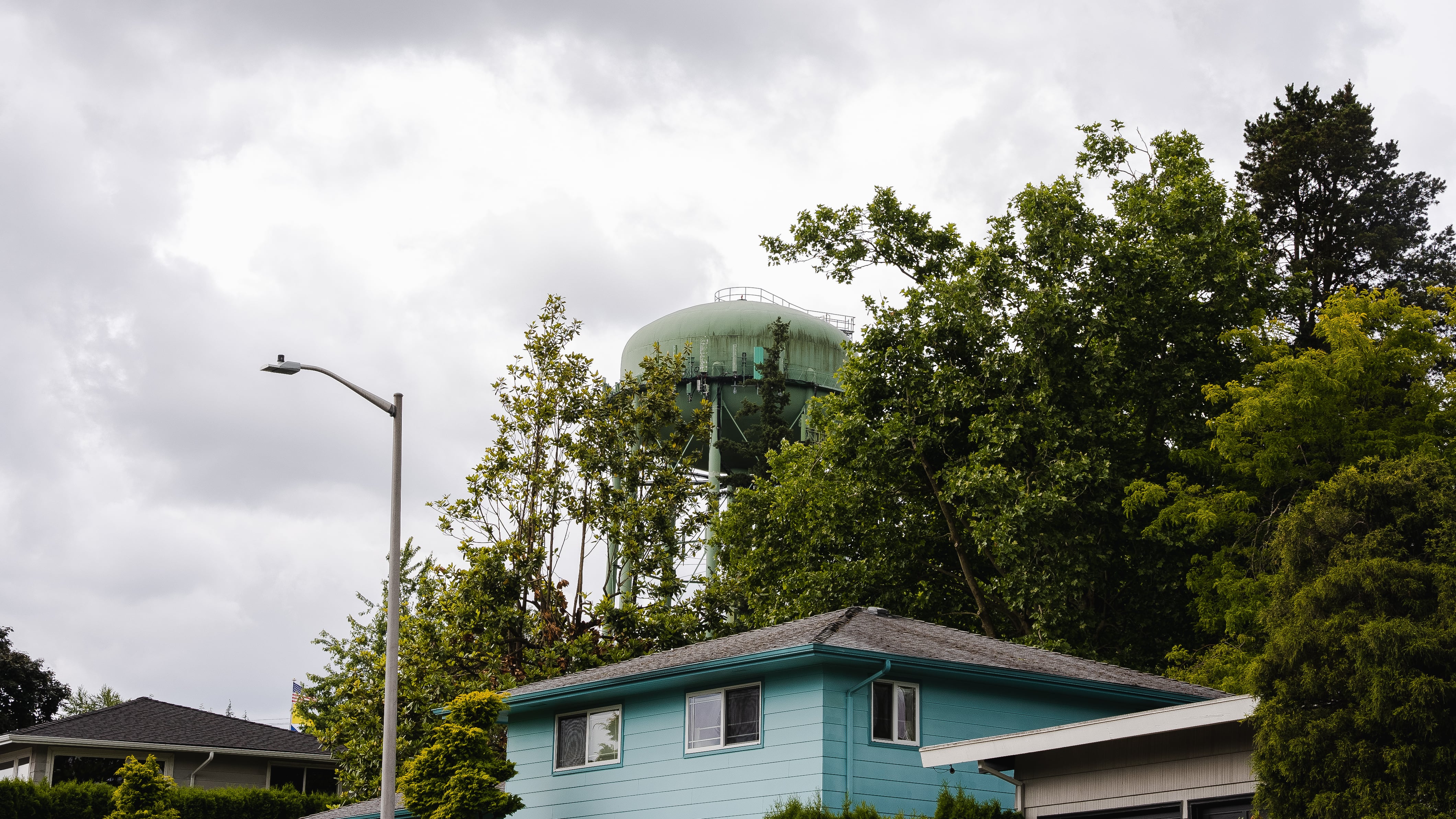I was shocked to find that the city of Portland’s Division of Asset Management is selling Portland’s water tanks (or, rather, the property under the tanks). Why don’t we need these tanks anymore? —Stunned
Strictly speaking, Stunned, most of the tanks listed on the page you sent me aren’t for sale—at least not yet. What happened is that long ago, the Portland Water Bureau determined that the tanks were no longer needed. By doing this, it planted a bureaucratic seed that, even today, continues to effloresce with administratively mandated procedures, declarations, outreach requirements, and opportunities for public comment. The online notification you saw is but a single flower from this mighty tree.*
These sites have all cleared at least one hurdle, though. They’ve all been designated as “excess real property,” meaning that, by city policy, they have to be either repurposed—as in adopted by another bureau—or sold. (Sadly, the city isn’t allowed to hang on to them just because they look cool.)
Why are they so unnecessary? Well, for one thing, we’re already up to our eyeballs in water storage. Remember a few years back when the Environmental Protection Agency harshed Portland’s mellow by telling us we had to replace our free-and-easy open-air reservoirs with state-of-the-art covered ones, and we all started singing “I Fought the Feds”? Well, the feds won. We built the reservoirs, and now our storage capacity tops 200 million gallons.
Of course, that doesn’t mean we were using those old towers right up until the most recent reservoirs were rolled out. Like the Austro-Hungarian Empire, Portland’s water system grew in part by annexing its neighbors. Many of these had tanks and towers that became redundant once they were swallowed up by Portland’s network, and that was quite a while back in most cases.
If you’re looking to see what it might take to get a tower of your own, the city also maintains a list of properties that have sold. The St. Johns Tank on North Oswego Avenue appears there, for example. According to realtor.com, it sold for $450,000 last June. That might sound cheap in the current real estate market, but don’t forget that the buyer is also responsible for removing the actual tower. And no turning it into an illegal Airbnb, either—in this case, at least, I guarantee the city would notice.
*Legend says that anyone who picks a flower from this tree will have all their downspouts magically disconnected free of charge.
Questions? Send them to dr.know@wweek.com.
